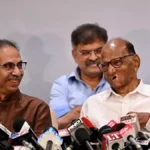Ajit Pawar, the Deputy Chief Minister of Maharashtra and leader of a faction of the Nationalist Congress Party (NCP), faces a challenging political landscape as he prepares for the upcoming state assembly elections. Here is an in-depth look at his role and strategies:
Contents
Recent Electoral Performance
- Lok Sabha Elections 2024: Ajit Pawar’s faction of the NCP performed poorly, winning only one of the four seats it contested. This was a significant setback, especially considering the high-profile loss in Baramati, where his wife Sunetra Pawar was defeated by Supriya Sule, Sharad Pawar’s daughter.
- Impact on Political Standing: The poor performance has raised questions about Ajit Pawar’s influence and the effectiveness of his alliance with the BJP and Eknath Shinde’s Shiv Sena. The results have also led to speculation about potential defections from his faction back to Sharad Pawar’s camp.
Strategic Focus
- Development Agenda: Ajit Pawar has emphasized his commitment to development and governance, aiming to shift the narrative from the electoral defeat to his administrative capabilities. He has highlighted ongoing and planned development projects as key components of his campaign for the assembly elections.
- Caste-Based Census and OBC Welfare: The NCP’s manifesto for the Lok Sabha elections included support for a caste-based census and various welfare schemes for Other Backward Classes (OBCs). Ajit Pawar has reiterated his commitment to these issues, which are likely to remain central to his campaign.
Internal Party Dynamics
- Managing Factionalism: The split within the NCP has created internal challenges for Ajit Pawar. Reports indicate that some MLAs who initially supported him are now reconsidering their allegiance, especially in light of Sharad Pawar’s continued influence and successful campaign strategies.
- Cabinet Positions and Bargaining Power: Ajit Pawar’s faction was excluded from significant cabinet positions in the Modi government, which has further weakened his bargaining power within the alliance. This exclusion has led to dissatisfaction within his camp and calls for a reassessment of their alliance with the BJP.
Alliance with BJP and Shiv Sena
- Strategic Alliance: Despite the setbacks, Ajit Pawar maintains that his alliance with the BJP and Eknath Shinde’s Shiv Sena is strategic and necessary for political stability. However, the alliance’s poor performance in the Lok Sabha elections has led to internal and external criticism, including from the RSS.
- Future Prospects: There is ongoing speculation about the future of the alliance, with some suggesting that the BJP might reconsider its partnership with Ajit Pawar ahead of the assembly elections. This uncertainty adds to the challenges Ajit Pawar faces in consolidating his position.
Campaign Strategy for Assembly Elections
- Focus on Local Issues: Ajit Pawar is likely to focus on local issues such as agricultural distress, particularly in onion-growing regions, which significantly impacted the alliance’s performance in the Lok Sabha elections. Addressing these issues will be crucial to regaining voter trust.
- Rebuilding Support Base: Efforts to rebuild his support base will involve addressing the concerns of his core voter groups, including Marathas, Muslims, Dalits, and OBCs. This will require a careful balancing act to maintain the support of these diverse groups while navigating the complexities of his alliance with the BJP.
Conclusion
Ajit Pawar’s role in the upcoming Maharashtra assembly elections will be pivotal. He faces the dual challenge of managing internal party dynamics and addressing the broader political implications of his alliance with the BJP and Shiv Sena. His focus on development, caste-based census, and local issues will be central to his campaign strategy as he seeks to overcome recent setbacks and re-establish his political influence in Maharashtra.







